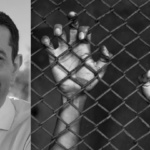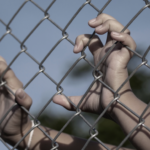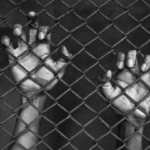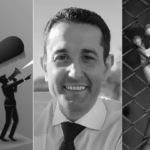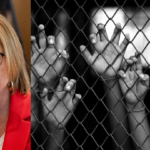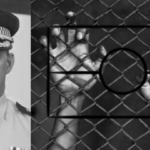Queensland Expands Regime to Imprison Kids on Adult Time, Ignoring the UN
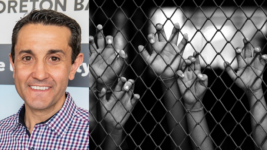
The Crisafulli government passed its second tranche of its “adult crime, adult time” laws on 22 May 2025, as part of a draconian policy designed to crackdown on a non-existent youth crimewave that now sees children aged 10 to 17, who are convicted in respect of 33 serious criminal offences, facing the same penalties as adults, and 15 of these crimes now carry up to life imprisonment for kids.
Since Queensland premier David Crisafulli oversaw the passing of the first round of these laws, under the Making Queensland Safer Bill 2024 on 12 December 2024, locking up children in prison is no longer an option of “last resort”, as that protection was repealed, and now the predilection in the Sunshine State, under the Liberal Nationals government, is to imprison kids for extended periods.
On average, 70 percent of those kids slated for the slammer, many of whom have not yet developed doli incapax, or the ability to understand or to hold the intent to commit crime, are First Nations kids, yet they only account for 6.6 percent of the overall populace aged between 10 to 17. And the government has openly acknowledged the new laws will disproportionately impact Indigenous kids.
So, extreme and rights-eroding are these laws that UN special rapporteur on torture Alice Jill Edwards and the UN special rapporteur on the rights of Indigenous peoples Albert K Barume warned Queensland not to pass these laws, as they fly in the face “international law and best practice”.
The experts also stressed First Peoples kids will be targeted and underscored that this is the pointy end of a national crisis: a crisis in adult politicians itching to lock up children, especially Black kids.
And for his part, Crisafulli was not swayed by any pesky UN human rights experts, as he looked straight down the barrel of the ABC camera late last week and said directly, with no apparent fear, “Here’s my message to the United Nations, you don’t control me, and I don’t answer to you.”
Logic-defying legislating
“I say to the United Nations, we make laws to deal with one of the biggest issues this state has ever faced: it’s a generation of repeat hardcore offenders, who are created by weaker laws,” Crisafulli continued, as he applied a bit of on-the-fly logic.
“So, the United Nations, you focus on the things you control, and I will look after the things that I control.”
The rhetoric the Queensland Liberal Nationals continually apply at present is that they’re attempting to turn the northern jurisdiction into a penal colony, because the previous decade of Labor laws had resulted in a proliferation of kiddie crims. However, the previous Palaszczuk Labor government kicked off the youth crime crackdown in late 2022, which is a campaign that has since swept the nation.
Palaszczuk’s two tough-on-youth-crime legislating measures over 2023 were well noted because both bills required the suspension of the Human Rights Act 2019 (Qld) (HRA) as two of the laws Labor successfully passed breached the basic rights of the child.
So, by the time Queensland went to the ballot box last October, the youth crime crisis, or criminalising children, was the central election issue, which was quite fitting in the post-truth political climate this country is drifting into, as that state’s youth crime rates had halved over the previous 14 years and in 2022, the child crime statistics in Queensland had dropped to a record low.
Yet, on taking office, the Crisafulli government acted with a sense of urgency to get the Making Queensland Safer Bill 2024 passed prior to Christmas. And after it had ensured that 13 serious crimes now carry adult time for kids, it then created an Expert Legal Panel in February to deliberate upon which other not-so-obvious offences should 10-year-olds face life imprisonment in regard to.
The recommendations of these experts then saw the drafting and passing of the Making Queensland Safer (Adult Crime, Adult Time) Amendment Bill 2025, which has resulted in 20 more serious offences – some of which haven’t been committed by a teen in the last five years – and the overriding accompanying message is, this is just the beginning of cracking down on children.
“Adult crime, adult time puts victims first by restoring consequences for action, it’s what we promised and what we’re delivering,” Crisafulli said on seeing his new laws come to fruition.
“This is the next step to restoring safety, but it won’t be the last, we’ll continue delivering the stronger laws needed to arrest the youth crime crisis.”
Statement on eroding the rights of the child
In the statement of compatibility relating to the just-passed adult crime, adult time laws, Queensland youth justice minister Laura Gerber admits that some of the new laws “are incompatible with human rights”, however she considers the current situation in respect of youth crime to be “exceptional”, therefore, she exercised the section 43 of the Human Rights Act power to override this discrepancy.
Gerber added that when any defendants aged 10 to 17 are facing life imprisonment, this triggers mandatory minimum non-parole periods, and as that is not in a child’s best interests, those best interests will not be considered, and these laws are likely to lead to overcrowded child gaols, so that means more kids stuck in adult watchhouses, which is also a right that will be breached.
When the issue of more room for children in prisons was raised with Crisafulli last December, he admitted in the short-term there will be some pressure, however in the long-term, his government has “a plan to deliver a raft of other detention facilities and different options”.
The youth justice minister further outlined in her statement that “it is likely that Aboriginal and Torres Strait Islander children will be impacted more by these amendments, due to their overrepresentation in the criminal justice system”, so the laws could “result in more Aboriginal and Torres Strait Islander children being imprisoned for longer periods of time”.
However, Gerber is “satisfied that there is no direct or indirect discrimination on the basis of race” involved in this seeming disparity, because the adult crime, adult time regime applies “equally to all young offenders”, and importantly, the courts “can still consider cultural considerations”.
Mind you, 70 percent of the Queensland child prisoner population being made up from a racial group, or Aboriginal and Torres Strait Islanders children, who only account for less than 7 percent of kids in general, does seem like there might be some systemic racism latent in that state’s criminal justice system.
The rights of the elusive victims
The first independent review report into the Human Rights Act 2019 tabled last September, right before the Queensland election, delivered 70 recommendations, which included suggested new rights to protect, including the right to self-determination for First Nations people, along with a swag of reforms to make remedies to rights issues more effective and to revoke the HRA override laws.
However, Queensland attorney general Deb Frecklington announced towards the end of March that the Crisafulli government was rejecting all 70 of the recommendations because they don’t properly relate to “the government’s positive agenda on victims’ rights”.
The AG further outlined that victims’ rights have been reinforced since the Liberal Nationals took power, and that has been via the passing of the Making Queensland Safer bills.
However, it’s rather unclear who these victims are that the Crisafulli government is attempting to reinforce the rights of, especially as the criminal justice system in Queensland appears to be overpolicing and overincarcerating First Nations people, whilst on Tuesday, Crisafulli’s statement on how his state is attempting to close the gap, suggests First Peoples are distinctly marginalised.
Of course, there are the other residents of Queensland standing on the other side of that gap that Crisafulli is trying to close, and they would be the non-Indigenous people whom these adult crime, adult time laws are not set to disproportionately impact in terms of incarceration.
But surely, Crisafulli couldn’t consider that the broader population – those holding all wealth, the property rights and who are not overrepresented in the carceral system – are the victims whose rights are in more desperate need of reinforcing than any marginalised or minority groups.
Surely, the Queensland government can’t be enacting a new criminal justice regime that would ensure more Black people are likely incarcerated over the course of their lifetimes than compared to non-Indigenous constituents because the premier of Queensland considers the victims’ rights that he must protect and are under threat are those of the majority population.


